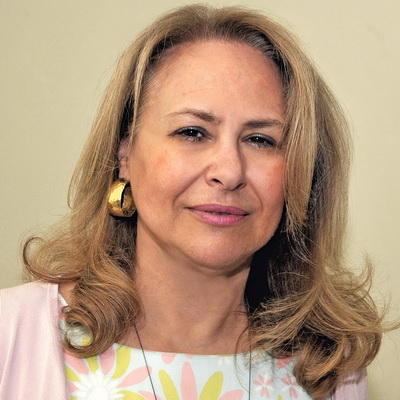
Interview: Hellenic Petroleum Group
Hellenic Petroleum was established in 1998 and is one of the leading energy groups in Southeastern Europe with a multi-dimensional Corporate Social Responsibility action plan both in Greece and abroad.
Mrs. Rania Soulaki, CSR Director of HELLENIC PETROLEUM Group, answers our questions about providing support to Non-Profit Organizations.
- A few words about the project and the Corporate Responsibility strategy of the Group.
Over the last 15 years, the HELLENIC PETROLEUM Group has consistently implemented CSR plans. In the early years when the concept of Corporate Social Responsibility was almost unknown to the wider society and the business community, our company had already adopted plans with social content. It was natural for us that we put more emphasis on the local societies where our facilities operate. This is because we have always believed that we need to be in constant dialogue with social partners of local communities, create partnerships and work together for better living conditions. Over the years, the needs of the society have changed and large social issues have emerged, such as the refugee crisis. The destitutes, homeless, unemployed and young people who leave Greece are all issues that must be tackled for a better future. As a result of these social problems, new initiatives were launched in the wider society, focusing on four main pillars of actions: Vulnerable Social Groups – Young people – Sustainable Cities and Environment – Culture, Sports and Health.
2. Social responsibility is an integral part of the HELLENIC PETROLEUM Group strategy which is implemented through a multidimensional plan of actions. Are there any specific areas you are focusing on?
Corporate Social Responsibility action plans of a major Energy Group should always consider the evolving needs of society and be consistent with the company’s areas of activity. One of the most important pillars we have been focusing on are Young People. We are implementing projects for young generations to reward excellence, provide them with opportunities for acquiring qualifications and knowledge, granting scholarships for working experiences and mentoring. So far, 44 young people have received scholarships to study at renowned overseas universities, more than 1.500 students have attended skills development seminars, and this year we have received over 4.000 students for educational visits at our refineries. However, the difficult economic conditions in which the Greek society has plunged in the past years have led us to diversify our programs. We have been focusing on the vulnerable groups of society, such as the refugees and destitutes. In conclusion, CSR strategies need to be updated and adjusted regularly.
3. Can you tell us how you provide support to non-profit organizations?
We support NGOs in many ways, i.e. funding or sponsorship in kind such as free of charge heating. This year we provided free heating to schools and institutions, with over 600.000 liters of oil. But most importantly, we always strive to provide the maximum benefit for all social groups addressed in our cooperation programs. It is a great pleasure for us to be actively involved in shaping programs, but also in implementing actions.
4. How can you be reached by a non-profit organization that would like to work with HELLENIC PETROLEUM?
We are always pleased to communicate with all our social partners, including NGOs. First contact can be made through our website at [email protected], where all requests to the Group are submitted. If the actions and vision of an NGO are considered to be in line with the actions and programs we have decided to support, an appointment may be arranged, either at our offices, or we can visit the agency to meet their entire team.
5. How do you evaluate the work of an organization and the impact of its performance?
As already mentioned , we want to get to know organizations and their people and support them. We evaluate their legal background, their consistency with obligations towards the state, their suppliers, partners, beneficiaries, the significance of their work, years of operation and impact on society, etc. All this should be consistent with what we, as company, have decided to support based on our strategy.
6. For how long do you provide support to NGOs and for what reasons could your support be suspended??
There are no time limits for our support, these depend on contingent needs. Programs and collaborations often achieve substantial results and have a greater impact and resonance after a few years of implementation.
7. What initiatives do you think are missing from the ecosystem of NGOs operating in Greece today?
I think initiatives benefiting the elderly will be crucial for the upcoming years. We need to prepare because the population of Greece is ageing and the elderly’s needs for services are going to increase without the state being able to fill the gap.
8. What do you think are the most important educational needs of non-profit organizations in Greece today?
It may sound paradoxical, but an NGO has the characteristics of an enterprise, so it needs to operate with a structure, to have goals, organization, operate transparently and ensure proper resource management, introduce innovation, promote teamwork and provide inspiration. Therefore, administration and presentation skills, as well as education in finance and sales, should be promoted to make up for current shortcomings.
9. We know you are implementing the “Energy for Life Travels” program, in partnership with NGOs and other stakeholders. Can you tell us a few words about the program and the results?
It is a program that began 5 years ago in some distant regions of Greece , where children living far away from large cities feel forgotten and neglected during winter. Our strategic decision when we designed the program was to provide equal access to environmental education for all. This program encourages organizations and universities to use their creative powers to raise awareness among children and small communities in general about sustainable development. As of today, we have implemented over 312 workshops in 54 locations on environmental topics such as recycling, energy saving, climate change, management of energy and raw materials, water protection; we also helped to install photovoltaic systems in schools, donated bicycles to an ecological student movement, and reached out to over 6,600 children. The feedback of children and teachers encourages us to continue and shows us how important these partnerships are.
Questions to NGOs
During this interview, Mrs. Rania Soulaki expressed her wish to pose the following questions to Non-Profit Organizations:
- What are the difficulties non-profit organizations face in their relationships with the business world?
- What are the steps you think should be taken to establish mutual trust and offer a greater benefit to society?
The HELLENIC PETROLEUM website is available here.
We are very grateful to Mrs. Rania Soulaki and the HELLENIC PETROLEUM Group for this interview.


